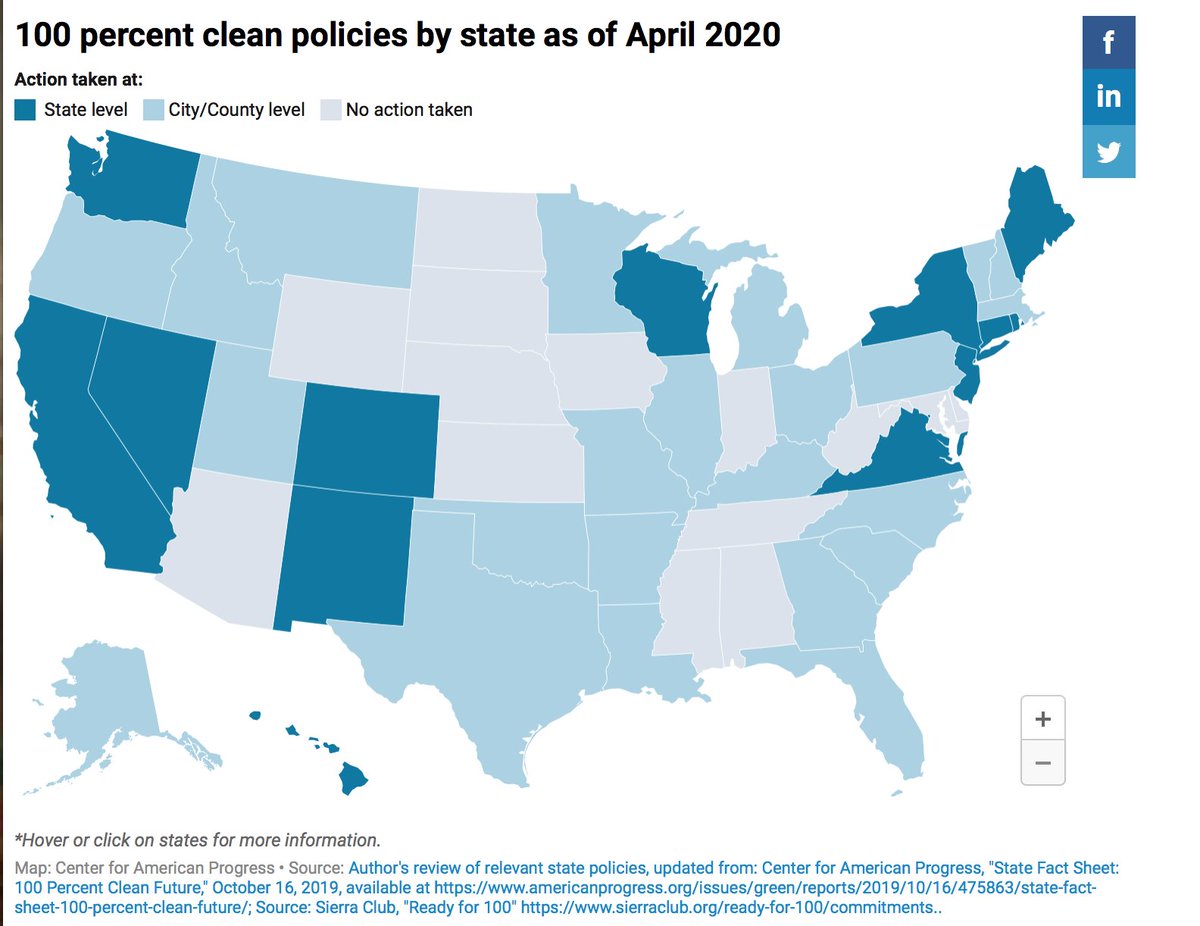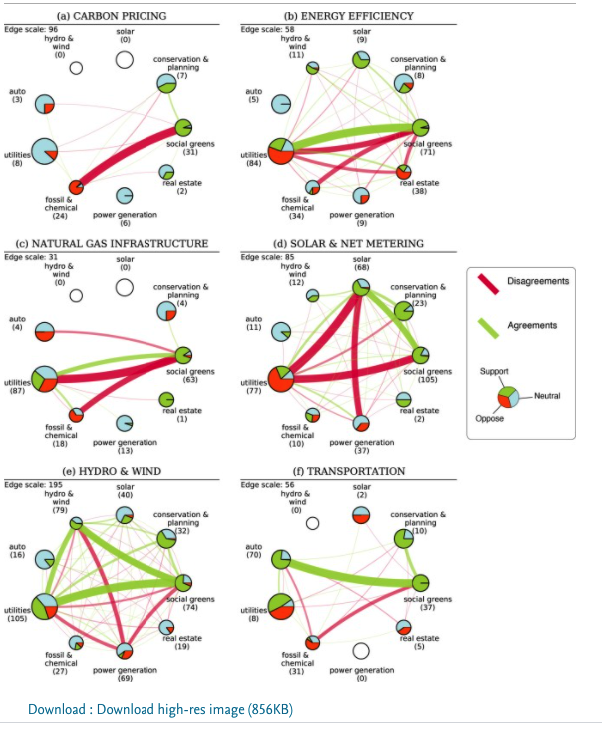
As federal action on climate change is deadlocked, again, states have moved ahead.
Still, major obstruction efforts slow, stop, or even reverse progress.
Just up @ERSS: who’s working to slow #climate legislation in MA? w/lessons for other states /1
authors.elsevier.com/sd/article/S22…
Still, major obstruction efforts slow, stop, or even reverse progress.
Just up @ERSS: who’s working to slow #climate legislation in MA? w/lessons for other states /1
authors.elsevier.com/sd/article/S22…
First, states are remarkable venues for social science of #climate struggles: 50 contexts, with different dependencies on #fossilfuel extraction, #vulnerability, and cultural/political context. Industries and activists battle on 50 different stages with different rules. (RPSs)/3 

The study focuses on #Massachusetts, which you’d think would be a best case for climate action: highly vulnerable to sea level rise (think Cape Cod and Boston built on fill), no fossil fuels, service sector dominated, liberal, Catholic, etc. And many strong social movements. /4 

Using the state’s remarkable lobbying records and the InfoMap algorithm, we identified nine lobbying coalitions. 4 routinely oppose climate and clean energy bills: utilities, fossil and chemical companies, real estate companies, and fossil fuel power generation companies. /5 

While these coalitions spent heavily on lobbying, they rarely show up to testify: over 90% of positions in testimony supported environmentalists on climate and clean energy bills. /6 

The relationships between these coalitions vary significantly based on the issue at hand: e.g. #utilities supported large-scale #wind and #hydro but opposed #solar, while the #RealEstate industry opposed energy efficiency&adaptation laws while rarely showing up on other issues/7 

Who wins? We found that #Utilities and their allies consistently dominate the energy landscape, with much of the legislation that comes out of committee reflecting their interests: 

Our work suggests the significant investment in lobbying, its value at producing legislative outcomes,the failure of testifying to change policy direction, and the complexity of interest group coalitions at the state-level. These patterns likely apply to other states and issues/9
Clean energy advocates were outspent on lobbying 3.5 to 1, or >6 to 1 if you included land use/adaptation legislation. /10 

Many studies in this area are based on interviews and process tracing; our study sought to examine empirically who lobbies with whom and against whom, who shows up to testify, and what they argue. We propose the value of systematic research to understand interest groups /11
Our method of inductively discerning coalitions and their opponents by lobbying self-reports is novel and should be useful at all levels of government where such data is available.Linking w/databases tracking history of legislation opens a new avenue for observing influence /12 

The vast majority of #fossilfuel and chemical interest groups’ lobbying efforts opposed climate and energy legislation, and they succeeded during this study period, in that the legislature did not move forward with any carbon pricing, divestment or fracking regulations. /13
However Fossil & Chemical groups as a whole were less engaged in blocking new renewable energy development than in protecting their status and legitimacy. /14
#Utilities coalition’s preferences functioned almost as a sine-qua-non,allowing only those bills which they approved to progress;#offshorewind appears to have become a consensus issue among several major lobbying groups, despite conflict over other elements of decarbonization/15 

There is substantial potential for “policy feedback” as wind power firms and industry organizations grow and spread across the region. While the solar industry is highly fragmented and rooftop arrays are often “behind the meter”, the offshore wind industry is concentrated /16
Large-scale installations are favored by utilities because they require transmission. In this context, a transition towards large-scale #windpower may do little to change the power relationships in Massachusetts or other states where utilities hold sway over energy policy. /17
Most states lack the lobbying data detail of #Massachusetts. Stunningly, votes are not recorded, and testimony was incomplete.Transparency will be crucial for useful future research, but also for the likely fate of climate and clean energy legislation, and of local democracy. /18
More studies are needed of cities, counties, and key regulatory bodies like Energy Facilities Siting Boards, Public Utilities Commissions, and departments of public utilities, where pipeline proposals, electrical grid modernization and gas leak prevention plans are heard. /19
There are 90,000 local governments in the United States alone:advantages of powerful interest groups and their coalitions will likely be evident,but different sets of countervailing factors will matter.There's much work to be done to understand who's delaying climate action! /End
• • •
Missing some Tweet in this thread? You can try to
force a refresh




